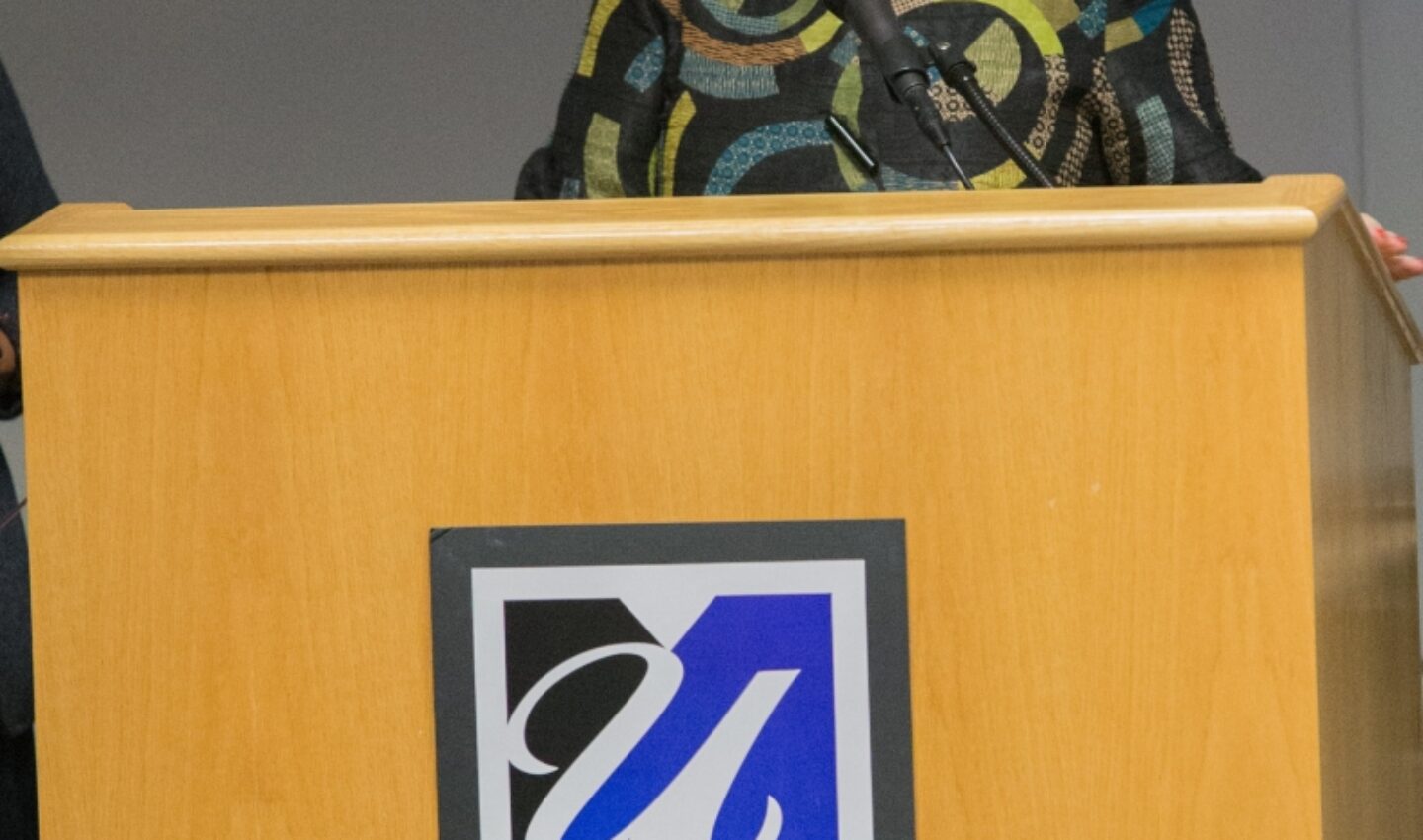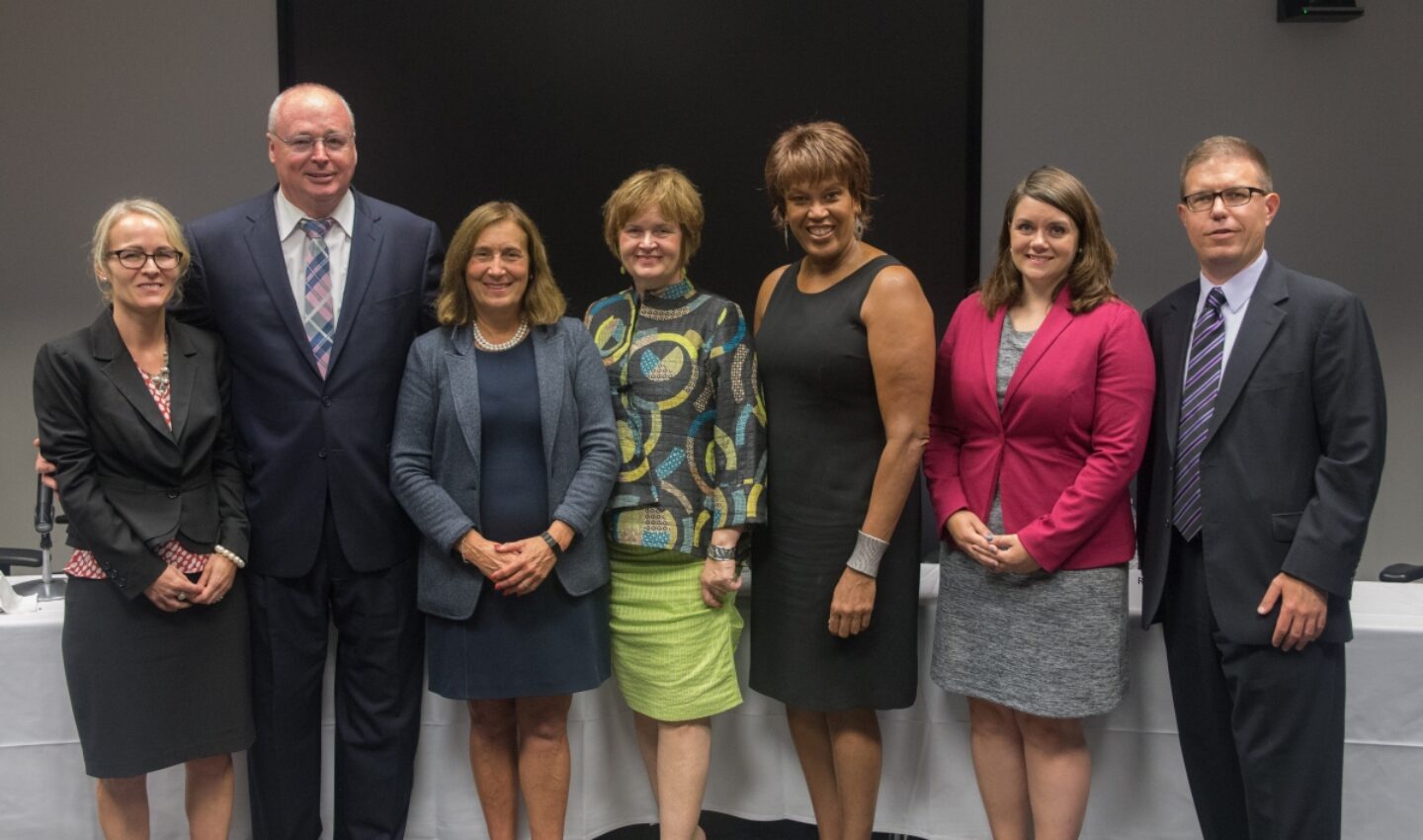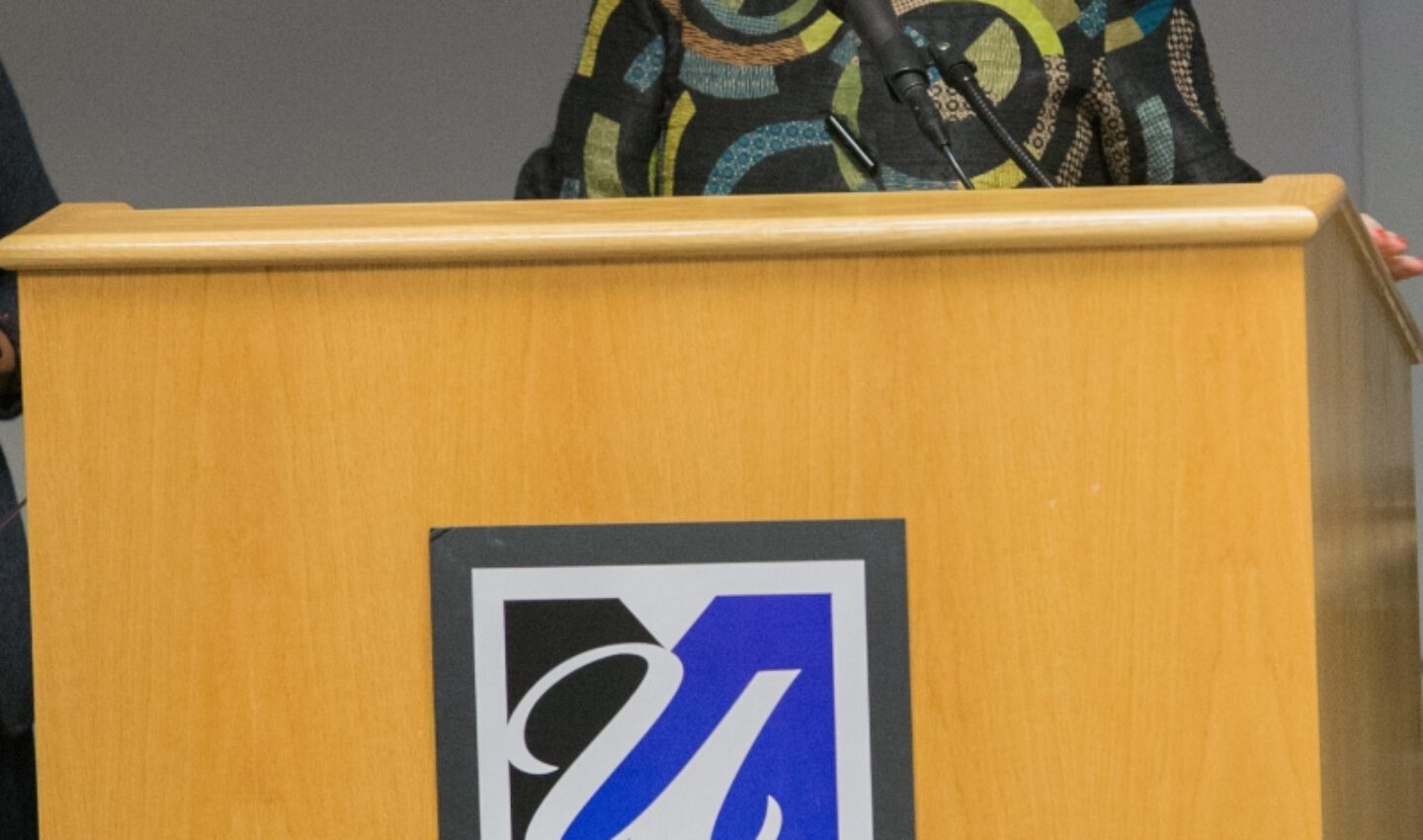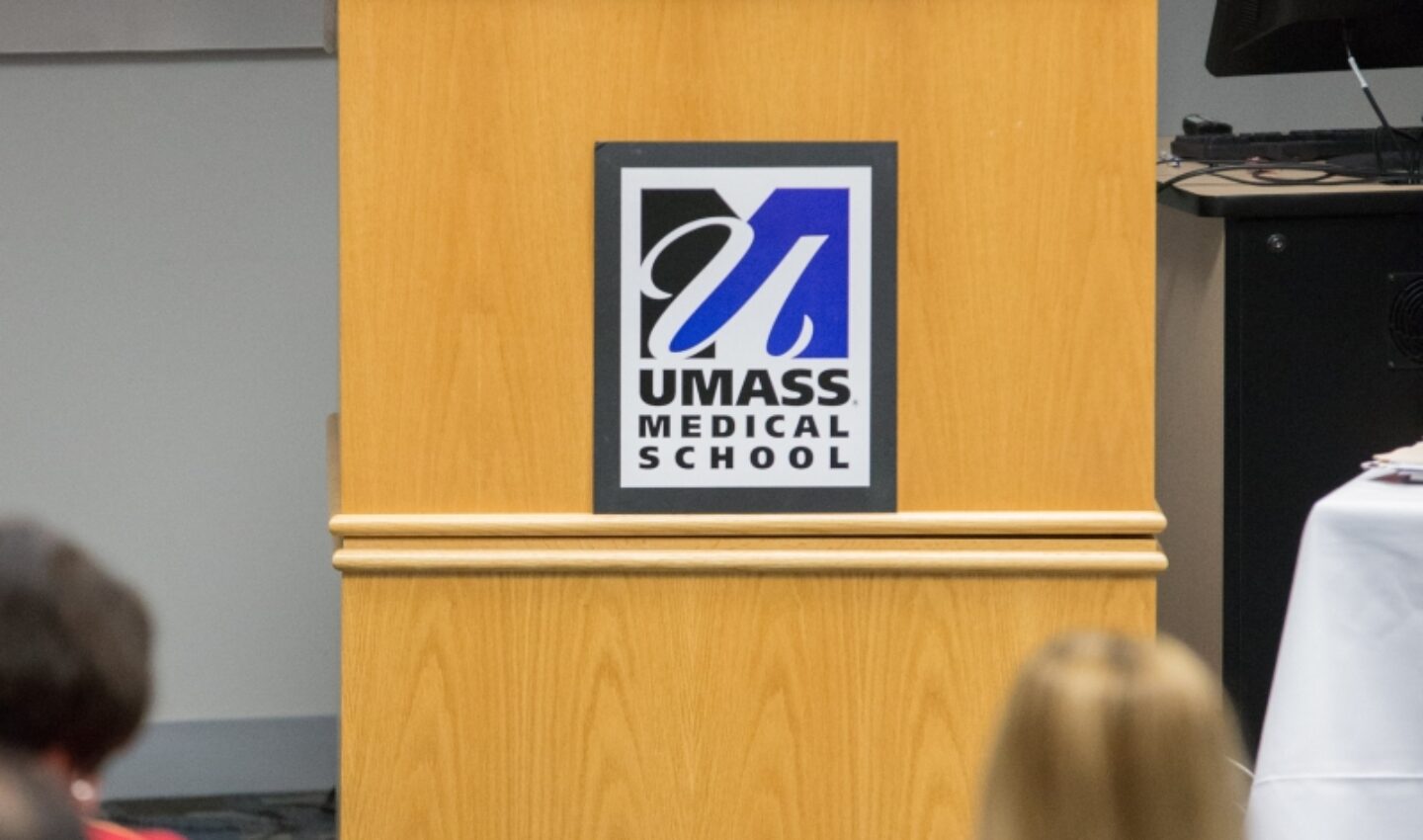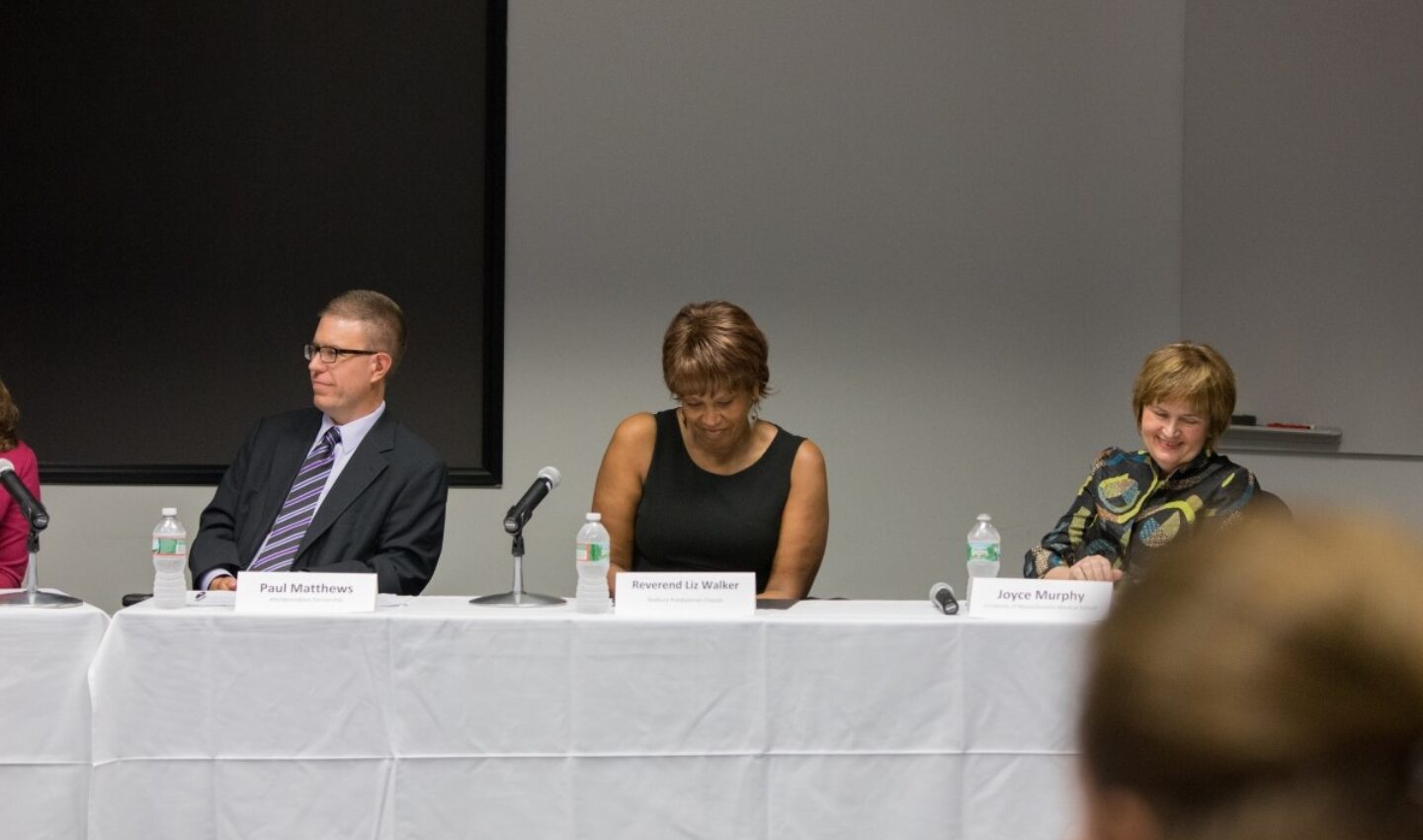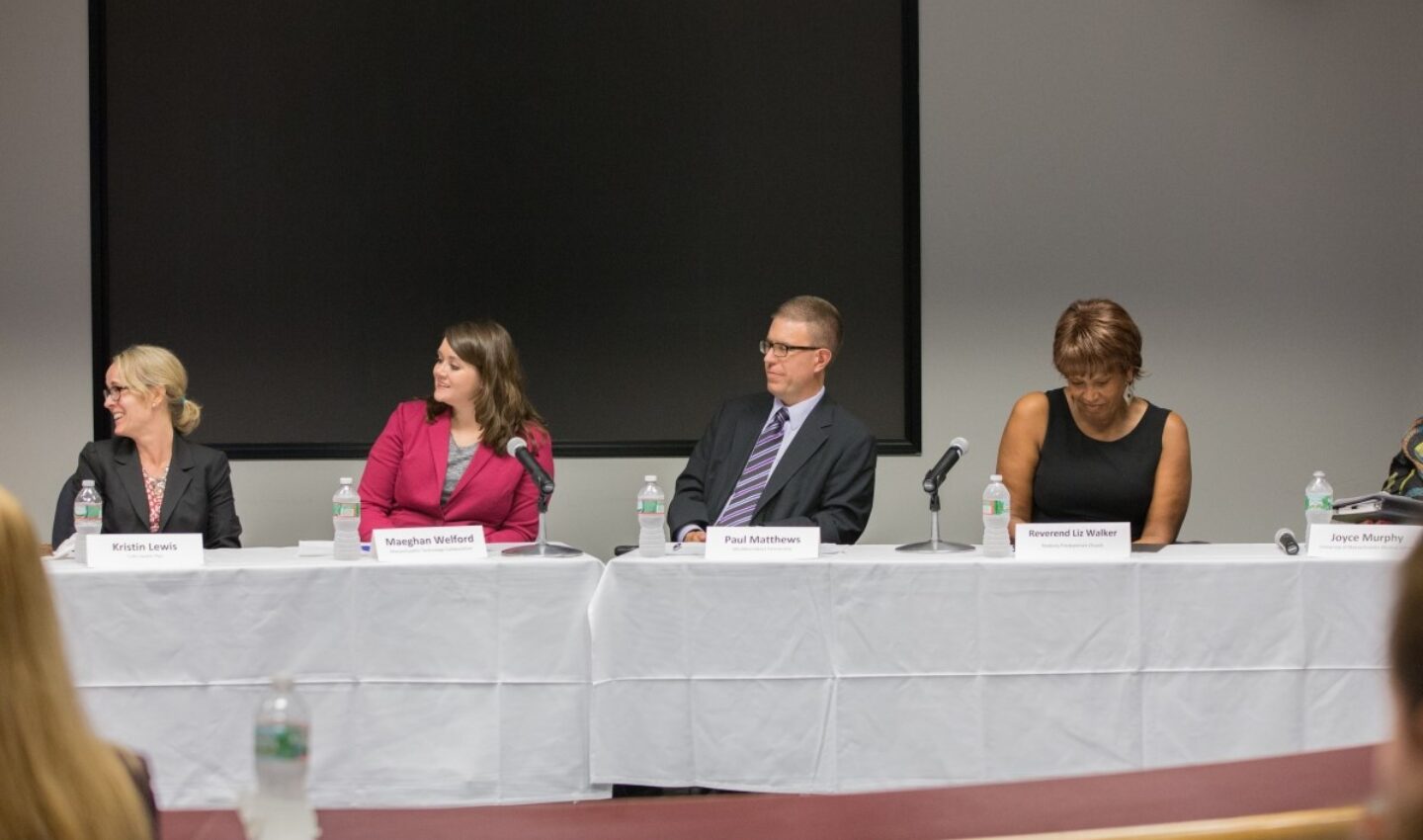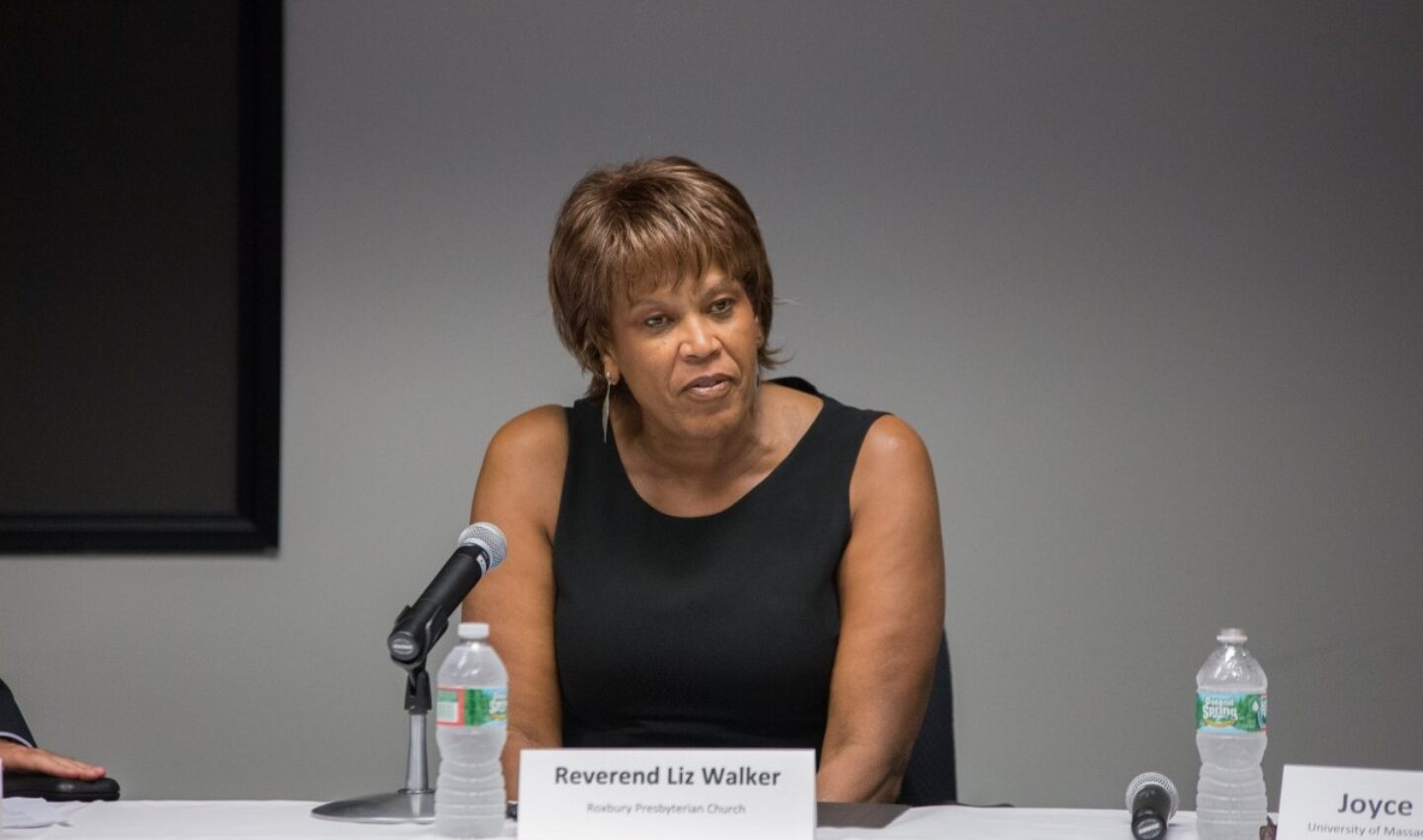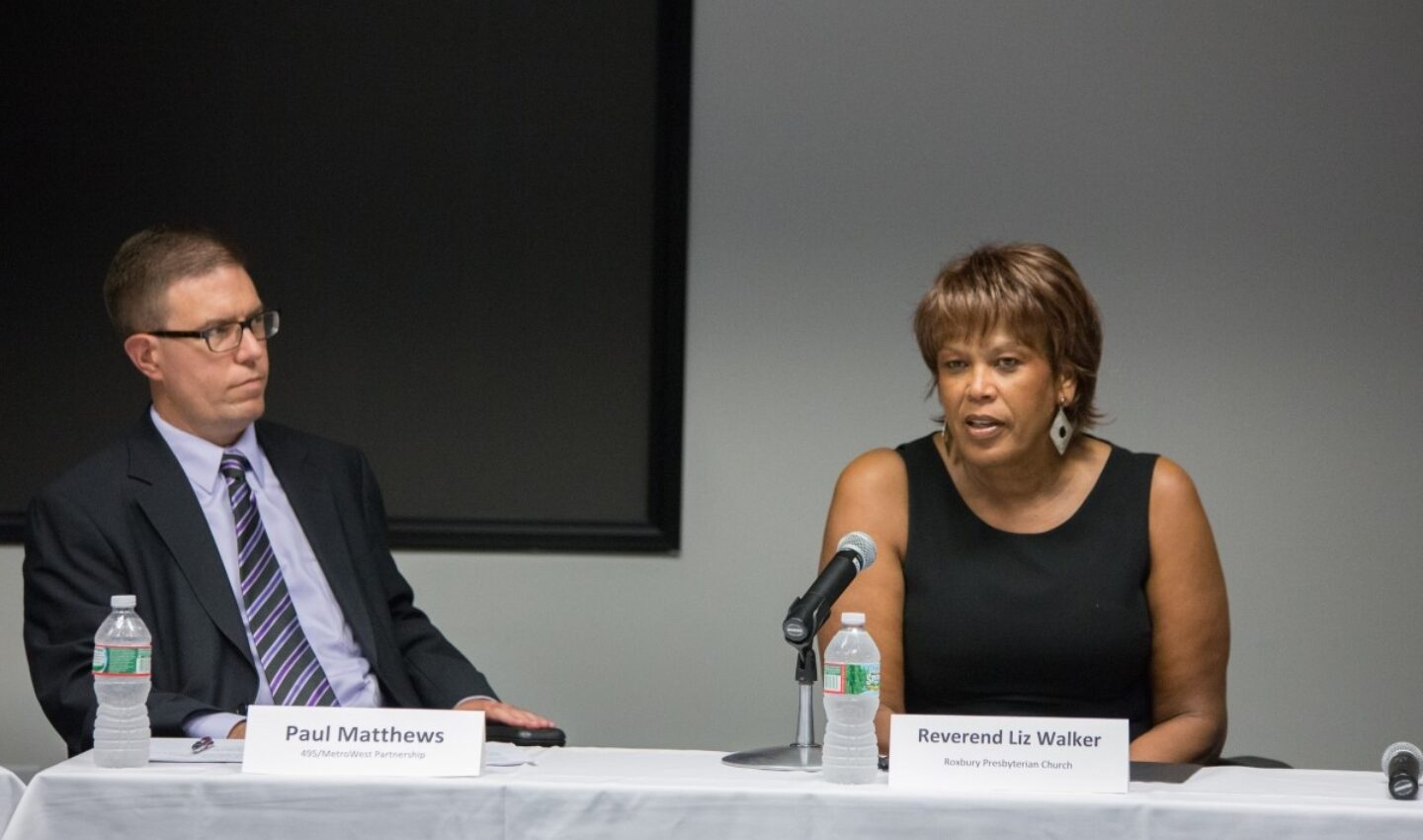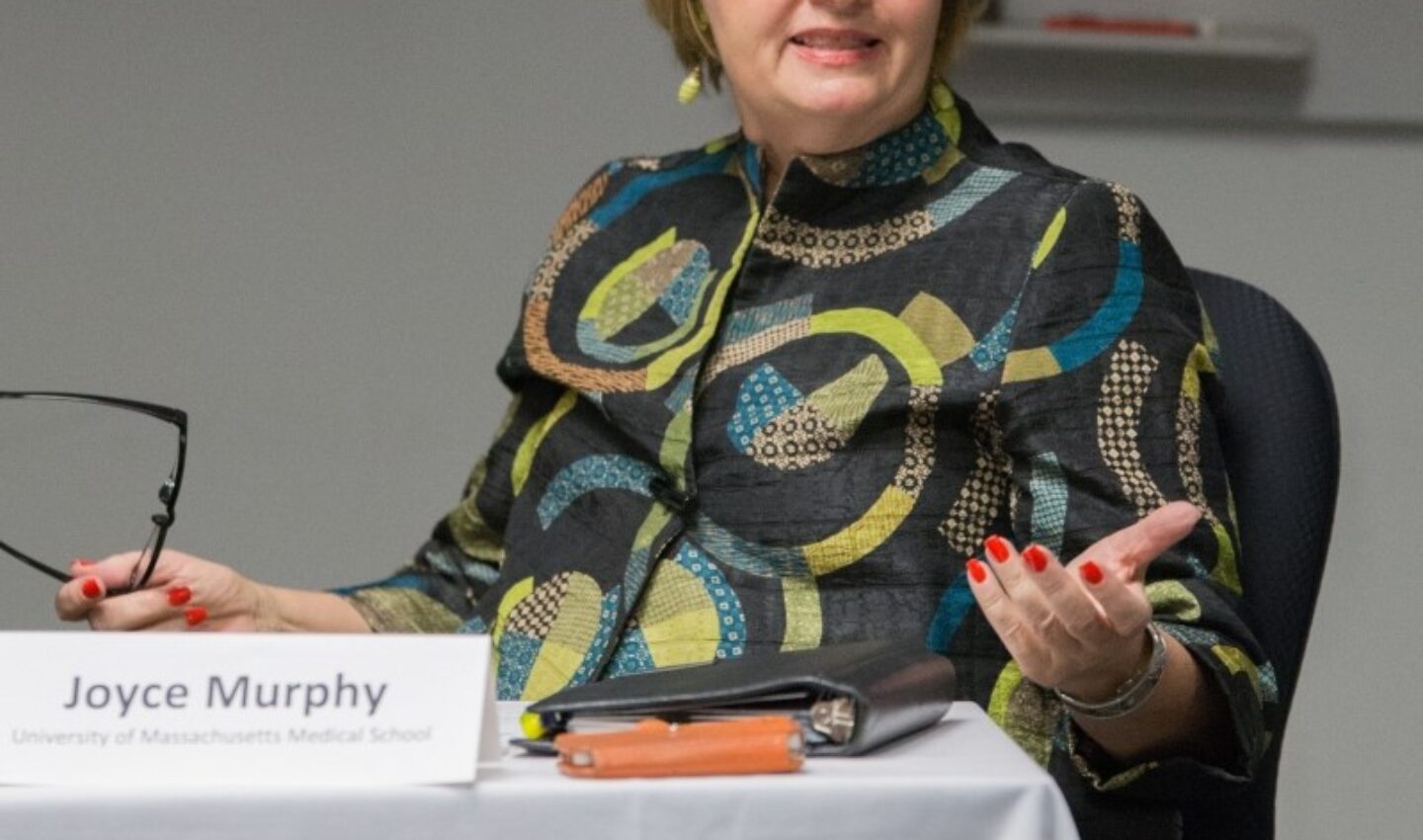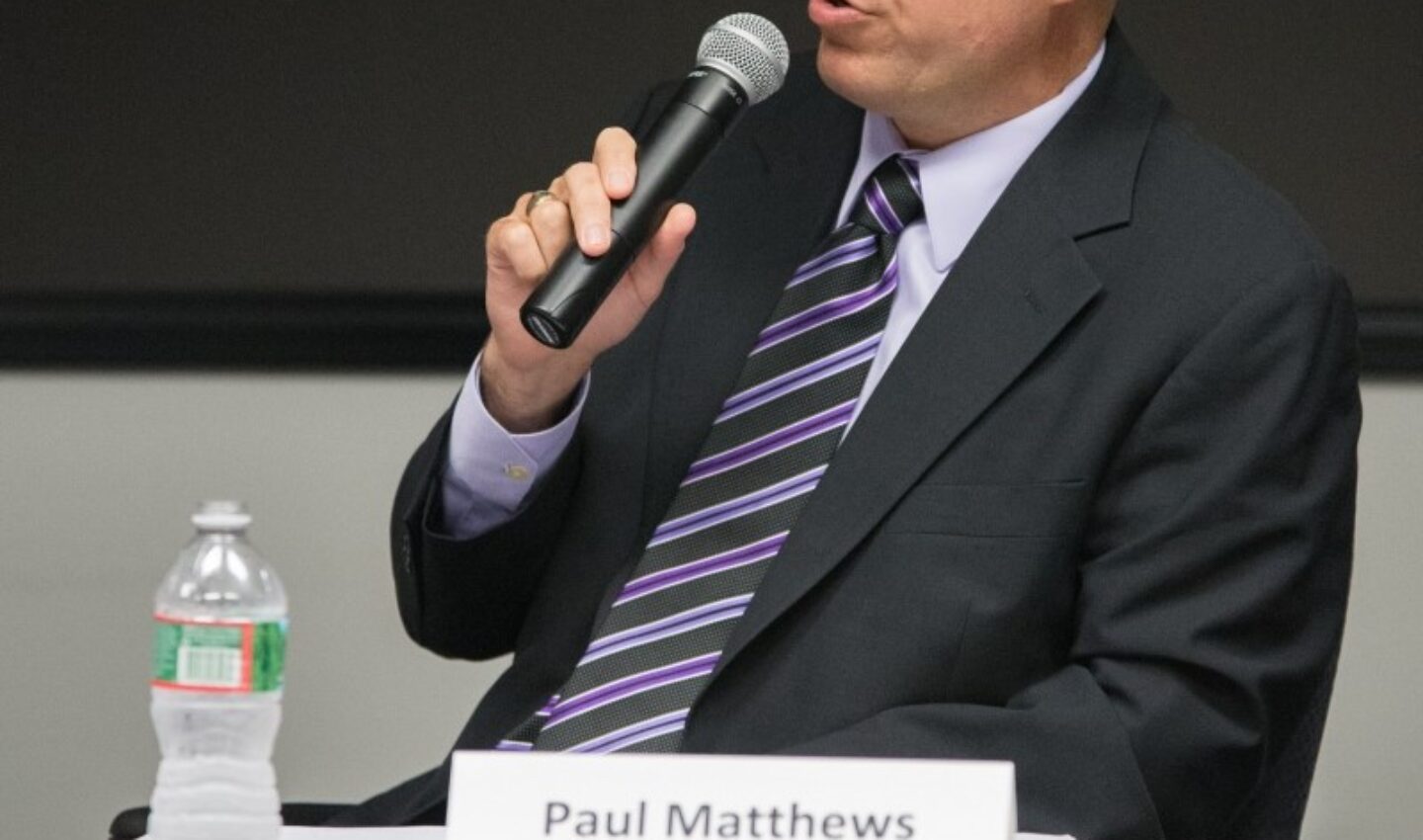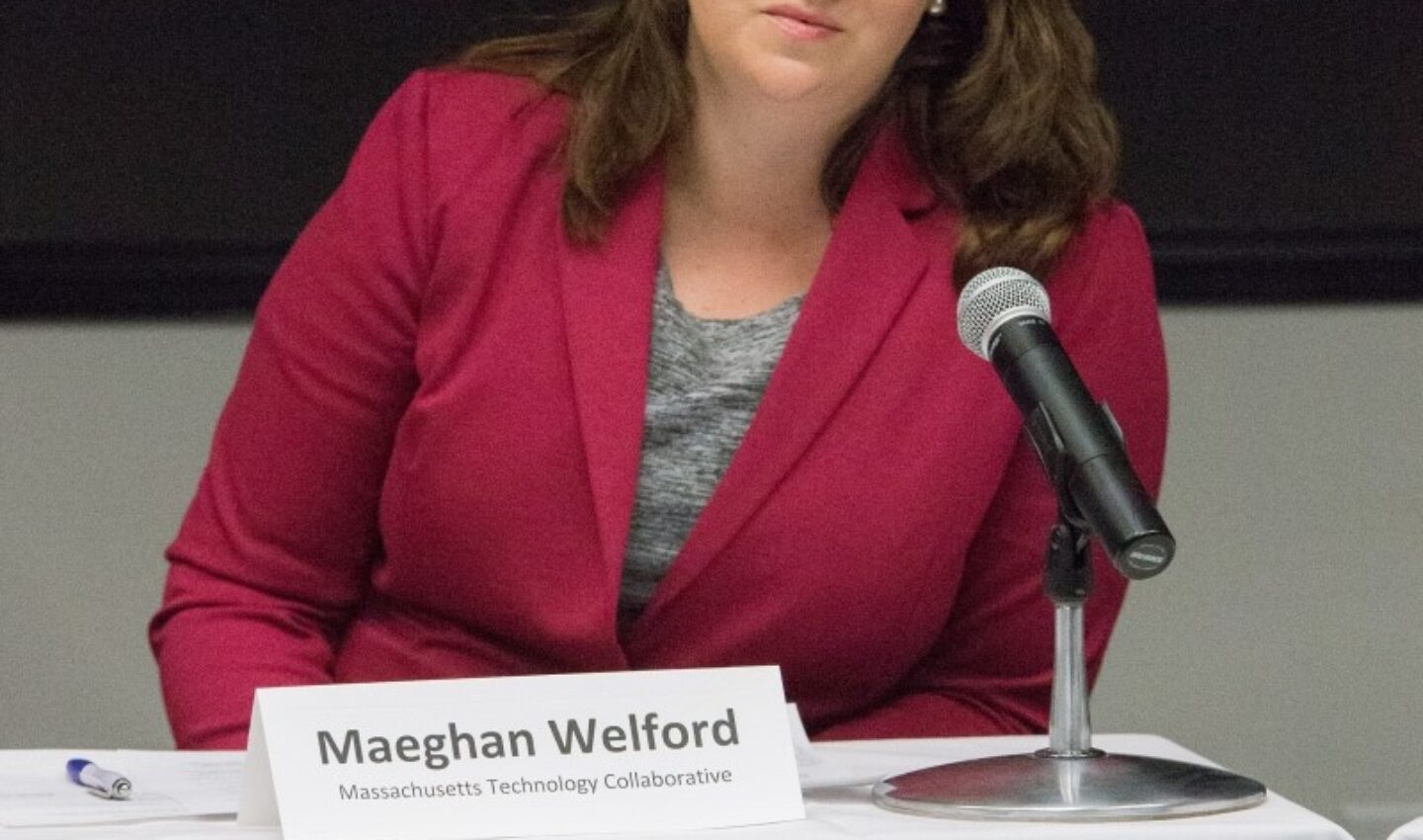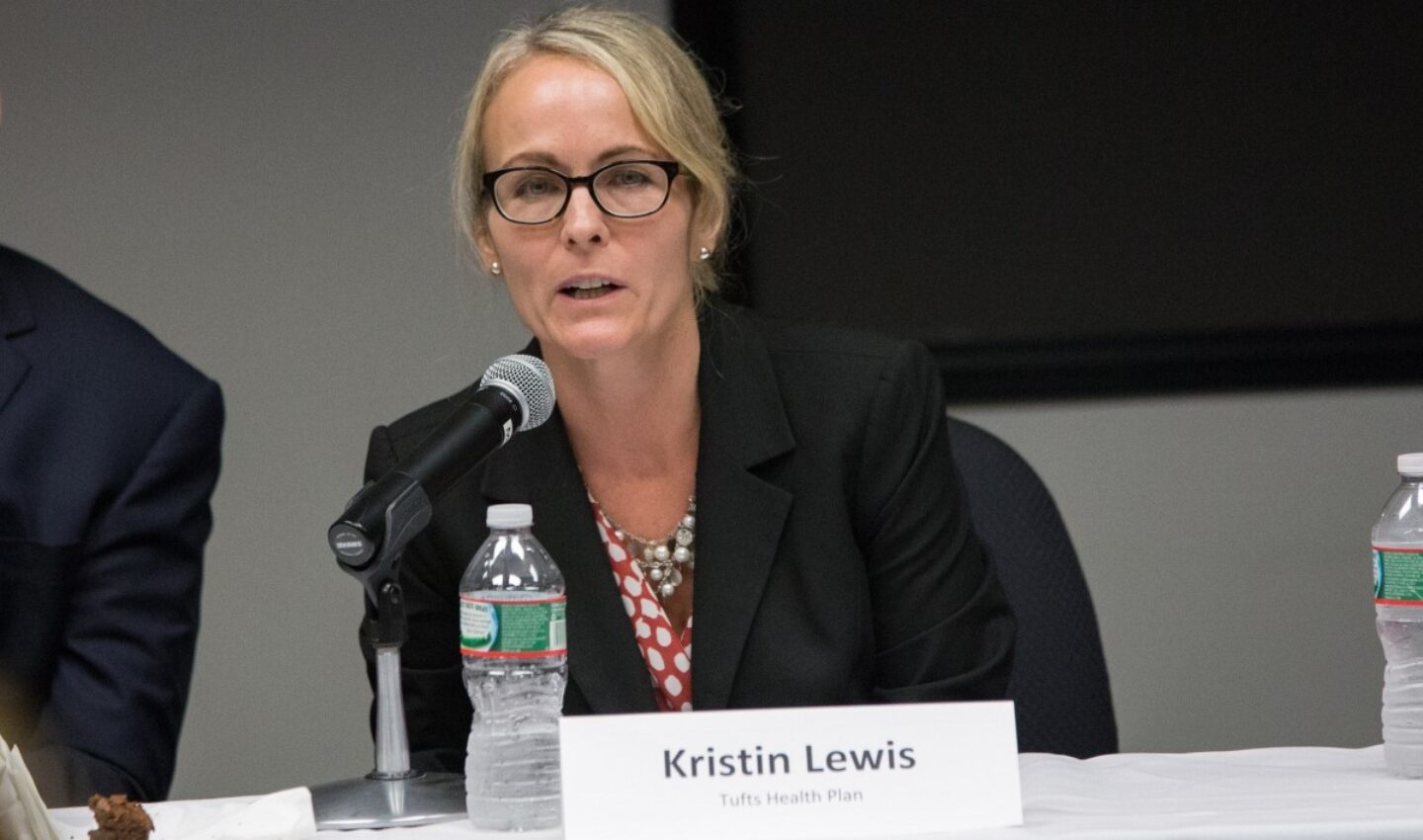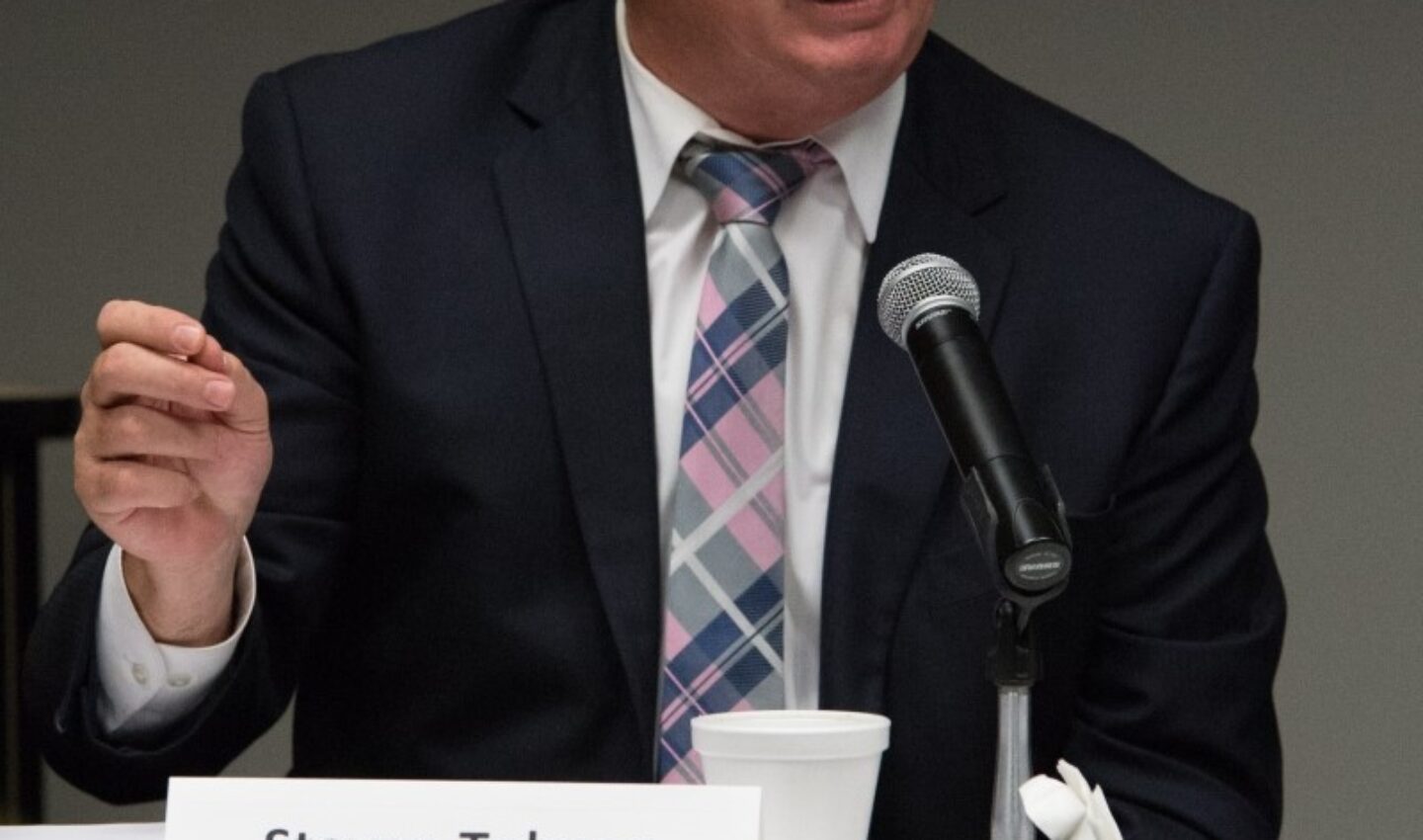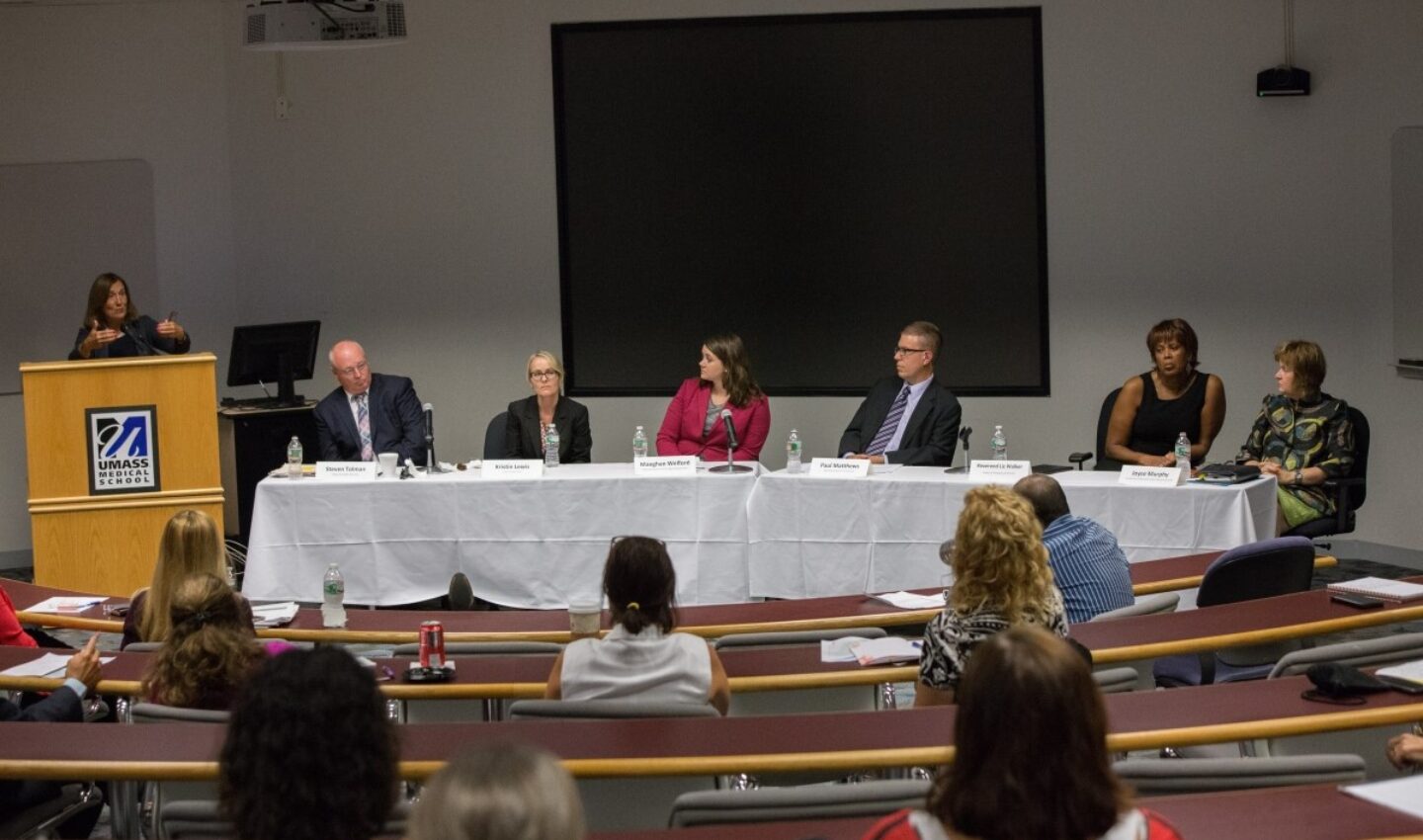State Treasurer Deborah Goldberg said equal pay is an economic issue that affects the state and the country during a discussion of wage equality Sept. 17 at UMass Medical School’s Commonwealth Medicine division. The Telegram & Gazette and Charter TV3 reported on the roundtable.
Massachusetts became the first state to require equal pay for women in 1945. But those on a panel at Goldberg’s roundtable discussion say the law is not being enforced.
“It impacts families, it impacts consumer spending, it impacts social services, it impacts people’s comfortable retirement,” Goldberg said. “We don’t need more laws, we don’t need more legislation. We need people to do it.”
The discussion in Shrewsbury was the third in a series of five regional roundtables in which Goldberg and her statewide Advisory Committee on Wage Equality are seeking input on equal pay. Goldberg said committee goals include developing a wage equality toolkit for businesses, launching a state-run website on pay equity for employers and employees, and planning a conference on best practices for closing the wage gap. Panelists said women in Massachusetts earn 82 cents to the dollar earned by men, but African-American and Latino women fare worse at 61 cents and 50 cents, respectively.
“It is the law, it’s the right thing to do and it’s good for business,” said panelist Joyce A. Murphy, executive vice chancellor of Commonwealth Medicine and a member og Goldberg’s Advisory Committee on Wage Equality.
Murphy said the wage gap affects all economic lines, white collar and blue collar. She cited recent reports about a gender gap in research funding at the state’s academic health science centers, including UMass Medical School.
Male scientists reportedly receive $889,000 in startup support in the awarding of federal research funding, while female scientists receive $350,000. The funding gap affects that female scientist for the rest of her career, Murphy said. Women scientists are highly educated, but they haven’t been trained or mentored to ask for money, she said.
“It’s just astounding that here we are in 2015 having this conversation,” Murphy said.
The Rev. Liz Walker, pastor of Roxbury Presbyterian Church and a former WBZ-TV news anchor, shared the story of a woman in her congregation whose husband was killed. The woman is a social worker and also works as an Uber driver and sells jewelry to support her children. Even with three jobs, the woman is among the working poor, Rev. Walker said.
Rev. Walker said some argue that if people made better choices, they wouldn’t be living in poverty.
“Poverty isn’t about making the right choices,” she said. “Poverty is when you run out of choices.”
“People want to work. People want to make fair wages,” Rev. Walker said. “We are so overdue for wage equity.”
Panelist Maeghan Welford, chief of staff of the Massachusetts Technology Collaborative, said the competitiveness of Massachusetts depends on wage equality. Her organization did an analysis of its parental leave policy, which it believed was a generous policy, and was surprised to learn that a woman who took parental leave would lose more than 10 percent of her salary that year.
Panelist Kristin Lewis, vice president of Government Affairs and Public Policy at Tufts Health Plan, cited two best practices businesses can undertake to close the wage gap: conducting a thorough pay analysis and monitoring hiring practices for “inadvertent steering.”
Lewis cited a court case in which a Boston parking garage had posted two positions – cashier and valet. Female applicants had been steered to the lower paying cashier position because it was considered a better fit.
The wage equality discussion was popular on Twitter, which is showcased in this Storify.

